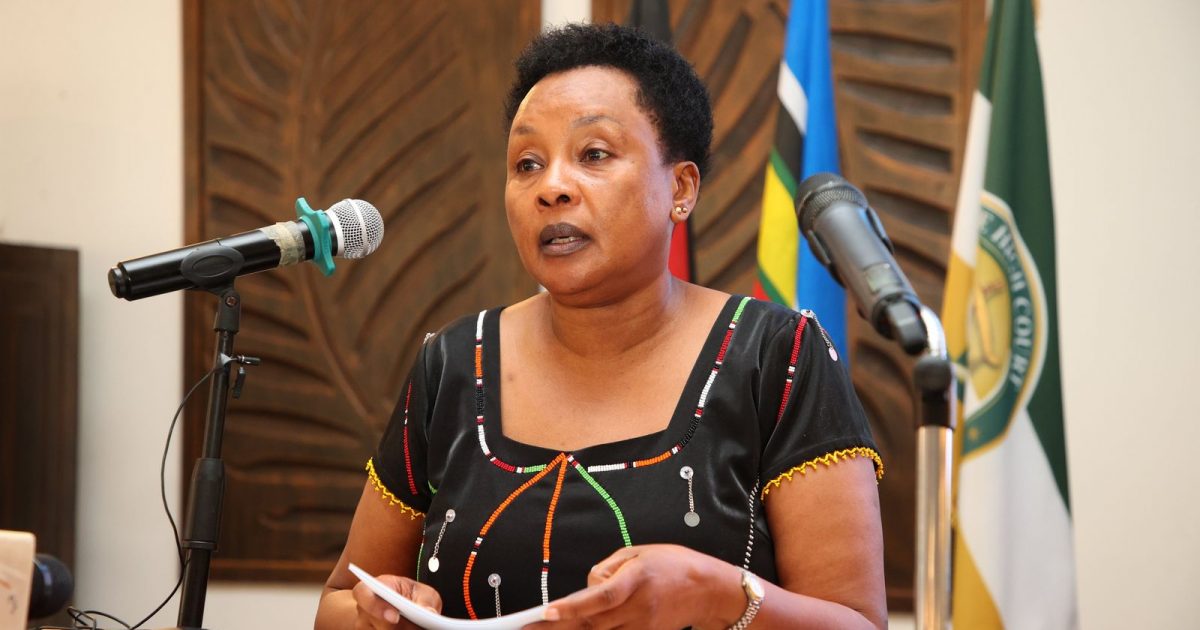The High Court has emphasized the need for absolute accountability in devolved functions to ensure fairness and transparency in serving the people across the country.
Speaking at the 2025 Annual High Court Leaders Conference at Sarova Whitesands Beach Resort, Deputy Chief Justice Philomena Mwilu hailed the High Court for its significant contribution in nurturing devolution, since the promulgation of the Constitution in 2010.
“The jurisprudence developed by the High Court has played a key role in strengthening devolution, safeguarding constitutional values and ensuring that the principles of governance are upheld both at national and county levels,” said Mwilu.
Themed 15 years of devolution: The High Court’s Role in Shaping Governance, the forum seeks to discuss aspects of devolution and its relationship with the courts, both retrospectively and prospectively, through various presentations and dialogue.
The Deputy CJ also urged the Judges to remain steadfast in their commitment to upholding the constitutional framework for devolution.
“It is essential that the principles of fairness, accountability, and transparency continue to guide the operations of the government at both the national and county levels,” she noted.
Furthermore, Mwilu called for enhanced collaboration among the members of the judiciary, adding that the next phase of devolution will require innovation in approaching service delivery, conflict resolution, and the continued expansion of citizen rights.
Additionally, she assured that the judiciary, led by the High Court, will remain at the forefront of devolution to ensure that the devolution remains true to its promise of empowering local communities and promoting sustainable development.
“Over the past 15 years, we have seen the high court’s jurisdiction expand to include a wide range of cases involving intergovernmental disputes, resource allocation, the exercise of devolved functions and the protection of constitutional rights at the county level,” highlighted Mwilu.
She further noted that the judiciary has expanded its footprint to all 47 counties, a move she described as a milestone in promoting access to justice for all Kenyans regardless of their geographical location.
The conference was attended by High Court Principal Judge Eric Ogola, the Registrar of the High Court, Clara Omondi, Mombasa Deputy Governor Francis Thoya, who represented Governor Abdulswamad Shariff Nassir, Senate Speaker Amason Kingi, Prof. Kivutha Kibwana, among other dignitaries.
The Registrar of the High Court stated that during the early years of devolution, the judiciary played a crucial role in interpreting the law on matters such as transfer of functions, equitable resource allocation, and human resource transition.
“Through its decisions, the High Court safeguarded equity and ensured the constitutional promise of devolution was not lost,” said Omondi.
On his part, Principal Judge Ogola welcomed the appointment of 20 new High Court judges in 2024, bringing the total number to 95.

He said the appointments would enhance the capacity of the judiciary to deliver justice more efficiently.
Thoya commended the judiciary for its continued role in strengthening devolution, noting that county governments have experienced the benefits and challenges of the new system first-hand.
“The High Court has been instrumental in resolving intergovernmental disputes and clarifying the roles of various institutions within the devolved structure,” said the deputy governor.
The Senate Speaker emphasized the need for continued collaboration between the judiciary and the legislature, particularly the Senate, in safeguarding devolution.
Kingi cited instances where the Senate has sought judicial interpretation in disputes involving county governments and raised concerns about court injunctions that may hinder constitutional oversight, referencing the case of former Taita Taveta Governor Granton Samboja.
“This theme allows us to reflect on how far we’ve come and to recalibrate how institutions like the Senate and the High Court can continue working together to entrench devolution,” he said.
By Nuru Soud and Sitati Reagan





